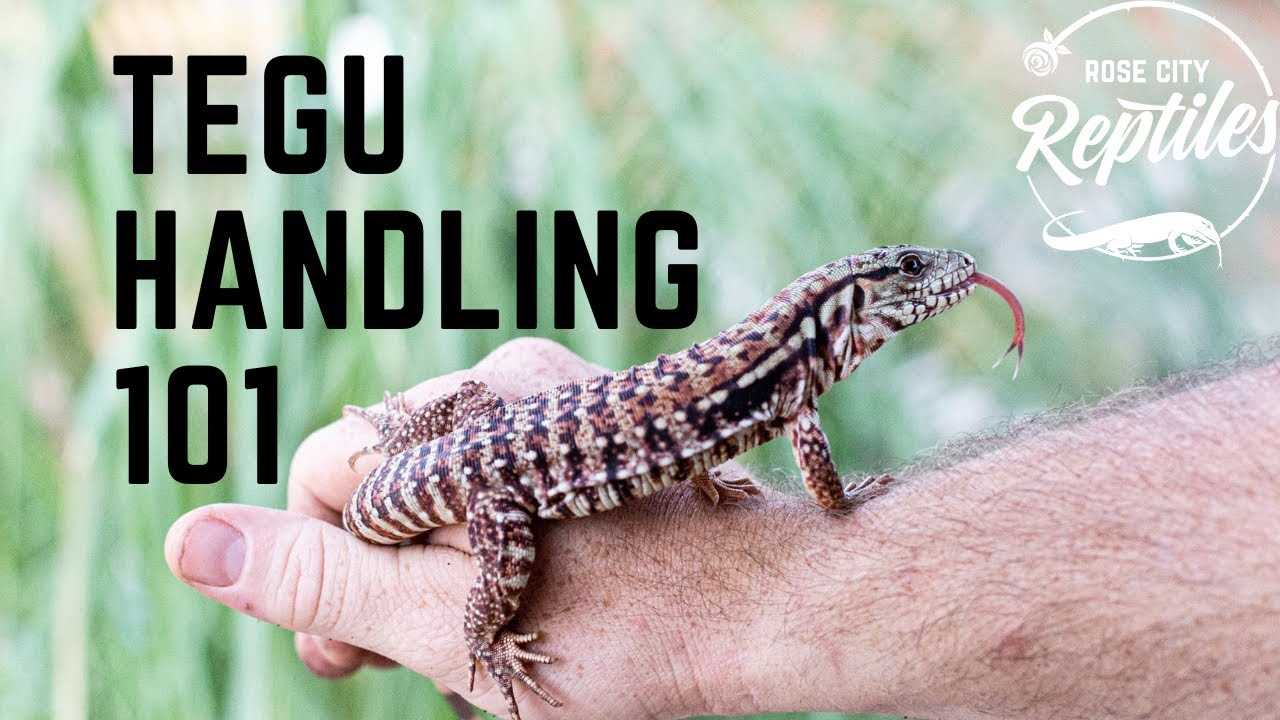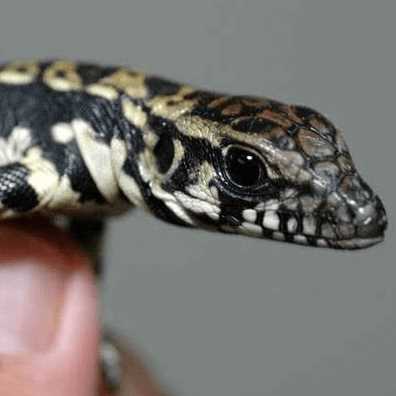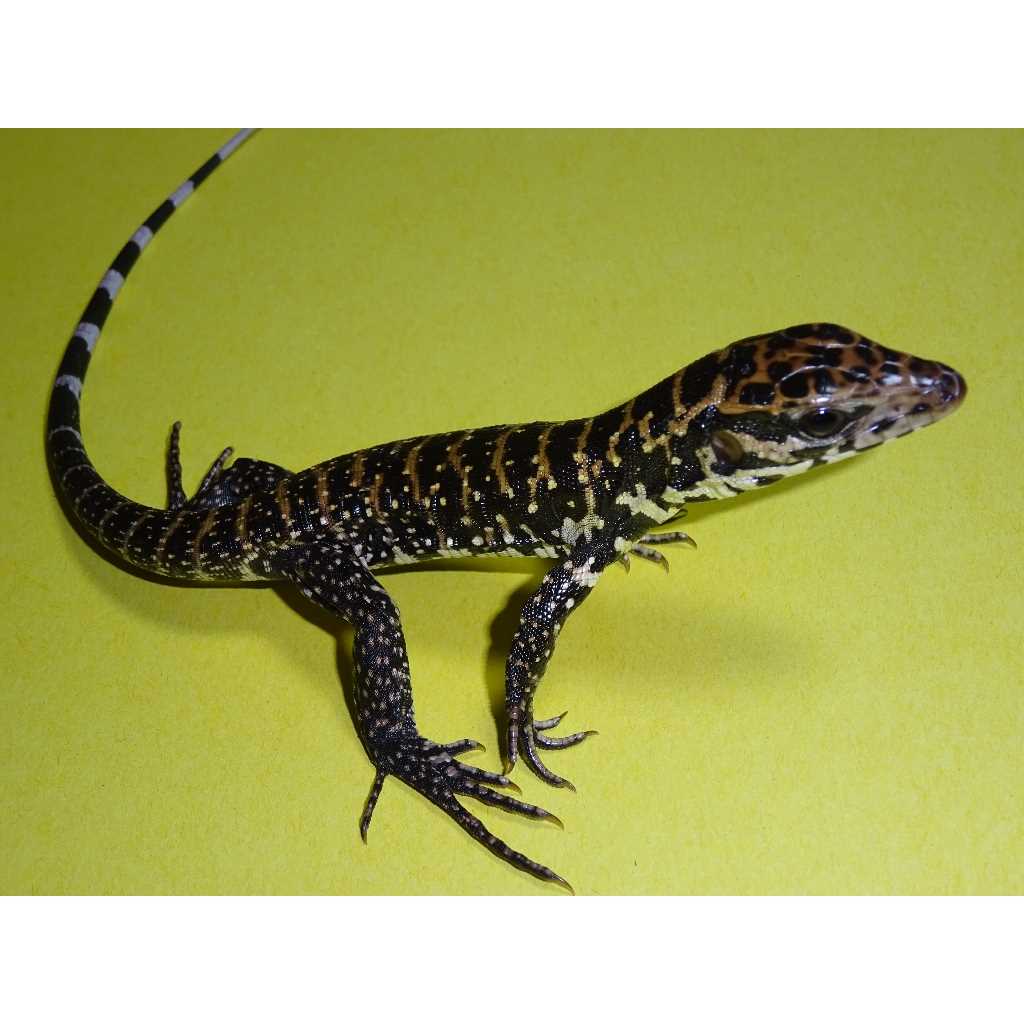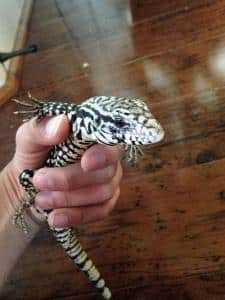If you’re a reptile enthusiast, you may have considered adding a baby tegu to your collection. These adorable creatures are a popular choice among pet owners due to their colorful and cute appearance. Baby tegus are small lizards that can grow into large and impressive reptiles with the right care and attention.
Proper Housing for your Colorful Baby Tegu
In terms of size, the enclosure should be spacious enough to allow your baby tegu to move around freely. A general rule of thumb is to provide at least 4-6 square feet of floor space for a baby tegu. This will give them room to explore, exercise, and display natural behaviors.
Additionally, provide a variety of hiding spots and climbing structures in the enclosure. Tegus are semi-arboreal, meaning they like to climb and explore their surroundings. You can add branches, rocks, and other materials to create a stimulating and enriching environment for your baby tegu.
Lastly, ensure that the enclosure is located in an area with proper temperature and lighting. Tegus require a basking spot with a temperature ranging from 95-100°F (35-38°C) and a cooler side of the enclosure with a temperature around 80°F (27°C). UVB lighting is also crucial for tegus, as it helps with their calcium metabolism.
By providing a proper housing setup for your baby tegu, you are creating a safe and comfortable environment for them to thrive and grow into the colorful and adorable reptile they are meant to be.
Temperature and Humidity Control
Proper temperature and humidity control is essential for the health and well-being of a baby tegu lizard. These small, colorful pets require specific conditions to thrive and grow.
Temperature
Humidity
Proper humidity levels are also essential for the health of a baby tegu. They require a moderately high humidity level of around 60-70%. This can be achieved by misting the enclosure with water daily and providing a water dish for the tegu to soak in. Using a hygrometer is recommended to accurately monitor and maintain the humidity level.
Proper Diet and Feeding Schedule for Your Small Baby Tegu

1. Provide a Balanced Diet
It is essential to offer a balanced and nutritious diet to your baby tegu. Their diet should consist of a variety of foods to ensure they receive all the necessary nutrients. A good diet for a baby tegu includes the following:
- High-quality commercial tegu food: Start by feeding your baby tegu a commercial tegu food specifically formulated for their nutritional needs. Ensure that the food is appropriate for their age and size.
- Fresh fruits and vegetables: supplement their diet with fresh fruits and vegetables. Offer a wide variety of leafy greens, such as kale, collard greens, and mustard greens. Additionally, provide them with fruits like strawberries, blueberries, and bananas.
- Protein sources: Baby tegus require a good source of protein for their growth and development. Offer them lean protein sources such as insects (crickets, mealworms) or small portions of cooked meat (chicken, turkey) to meet their protein requirements.
2. Feeding Schedule
Remember to provide fresh water at all times in a shallow dish that is easily accessible for your baby tegu.
By following a proper diet and feeding schedule, you can ensure that your small baby tegu grows into a healthy and happy adult lizard.
Handling and Socialization
Building Trust
Building trust with your baby tegu is important, as it will create a bond between you and your reptile companion. Start by approaching your tegu slowly and gently, allowing them to see and smell you. Avoid sudden movements or loud noises, as this may startle them.
Handling Techniques
Remember to wash your hands before and after handling your tegu to prevent the spread of bacteria or diseases. This is important for both your health and the health of your reptile.
It’s also important to note that baby tegus have sharp claws, so you may want to consider trimming them regularly or providing appropriate surfaces for them to wear down naturally.
Socializing with Other Pets
It’s recommended to supervise all interactions between your baby tegu and other pets until you are confident that they will get along. This will help prevent any potential injuries or stress to any of the animals.
Benefits of Socialization
Proper handling and socialization have many benefits for baby tegus. It helps them become comfortable with human interaction and reduces their stress levels. A well-socialized tegu is more likely to be friendly, adaptable, and less prone to aggression.
Regular interactions with your baby tegu will also help them become accustomed to different environments, sounds, and smells, which will make them more confident and less likely to become scared or agitated in new situations.
Conclusion
Handling and socialization play a crucial role in the care of baby tegus. By building trust, using proper handling techniques, and introducing them to other pets, you can ensure that your adorable tegu grows up to be a happy and well-adjusted pet. Regular interactions will strengthen the bond between you and your tegu, allowing for a rewarding and enriching relationship.
Enclosure Enrichment for Your Baby Tegu: Promoting a Healthy and Happy Reptile

The Importance of Enclosure Enrichment
Baby tegus are highly intelligent and curious creatures. They require mental and physical stimulation to prevent boredom and maintain their natural behaviors. By providing enrichment opportunities in their enclosure, you can create a more natural and stimulating environment for your pet.
Enrichment Ideas for Baby Tegus
There are various ways to enrich your baby tegu’s enclosure, helping to keep them entertained and engaged. Here are some ideas to consider:
| Enrichment Type | Description |
|---|---|
| Hide Boxes and Burrowing Substrate | Provide small and secure hide boxes within the enclosure for your tegu to explore. Adding burrowing substrate, such as a mix of bark and soil, allows them to dig and create tunnels, replicating their natural habitat. |
| Climbing Structures | |
| Visual and Auditory Stimuli | Add visual and auditory stimuli to the enclosure, such as fake plants, hanging mobiles, or even a small radio. This can provide sensory stimulation and prevent boredom. |
| Foraging Activities | Hide small food items within the enclosure to encourage foraging behavior. This engages your baby tegu’s natural hunting instincts and keeps them mentally stimulated. |
| Water Enrichment | Include a shallow water dish or small pool within the enclosure. Tegus enjoy soaking and splashing around, which not only provides enrichment but also helps maintain their hydration. |
Rotating Enrichment

It’s essential to rotate and introduce new enrichment items regularly. Reptiles, like baby tegus, can become accustomed to their surroundings and may lose interest in the same toys or structures over time. By providing new and exciting enrichment options, you can keep your tegu engaged and prevent boredom.
Health Monitoring and Veterinary Care
Ensuring the health and well-being of your baby tegu is crucial to their overall quality of life. Regular health monitoring and veterinary care are essential for keeping your pet lizard in optimal condition.
Additionally, as a responsible tegu owner, you should regularly monitor your lizard’s behavior and habits. Pay attention to their activity levels, appetite, and digestion. Any sudden changes in behavior or abnormal symptoms should be addressed promptly by seeking professional veterinary advice.
By prioritizing health monitoring and veterinary care, you can ensure that your cute and colorful baby tegu remains happy and healthy for years to come.
Training and Mental Stimulation

Training a baby tegu is not only a fun and rewarding experience but also an essential part of ensuring their mental and physical well-being. Tegus are incredibly intelligent and curious creatures, so providing them with mental stimulation and enrichment activities is crucial for their development.
One of the first steps in training your adorable pet is establishing a strong bond and trust with them. Spend quality time with your tegu every day, handling them gently and offering treats as rewards for positive behavior. This will help them feel comfortable and secure in your presence.
Next, introduce basic commands such as “sit” or “stay” and reward your tegu with treats or praise when they successfully obey. Use positive reinforcement techniques to encourage good behavior and discourage any unwanted behaviors.
Aside from basic commands, you can also teach your baby tegu more advanced tricks and behaviors. Tegus have an excellent sense of smell, so you can challenge them by hiding treats around their enclosure and encouraging them to find them. This will keep them mentally stimulated and engaged while also satisfying their natural hunting instincts.
In addition to training, providing your tegu with plenty of mental stimulation is essential for their overall well-being. Create an enriched environment in their enclosure by adding different textures, hiding spots, and puzzle toys for them to explore and interact with. This will prevent boredom and promote natural behaviors.
Introducing your tegu to new experiences and environments is also a great way to stimulate their mind. Take them for supervised walks in safe outdoor areas or introduce them to new people and animals. This will help them become more confident and adaptable, making future training and socialization easier.
Remember, training and mental stimulation should always be positive experiences for your tegu. Be patient, consistent, and never force them to do something they are uncomfortable with. With time and dedication, you will have a happy and well-trained baby tegu as a lovely addition to your reptile family.

I’m Lena Adams—a product of an unconventional upbringing in the African wilderness. My father, a daring explorer of African wildlife, sparked my fascination with reptiles, a passion that intertwined with the tragic loss of my mother during an expedition, leaving an indelible mark on my life. Driven to understand the creatures that captivated my parents, I embarked on my journey, sharing insights about reptiles, frogs, and lizards on my website. Through my explorations and conservation efforts, I honour my family’s legacy while seeking connections—to the creatures, nature, and the mother whose presence I yearn to understand.
